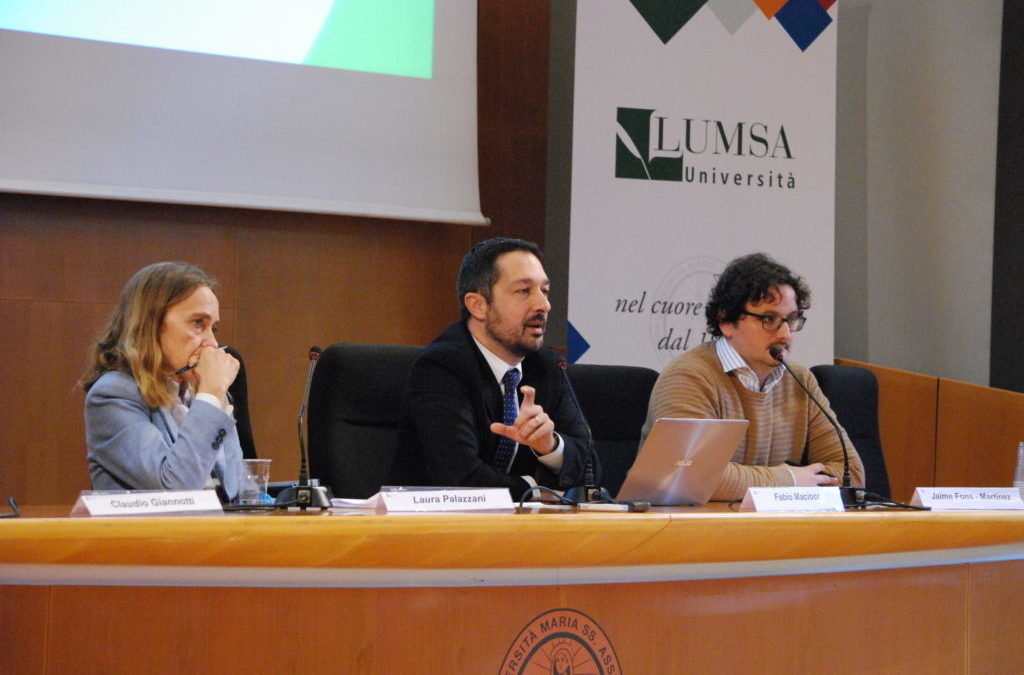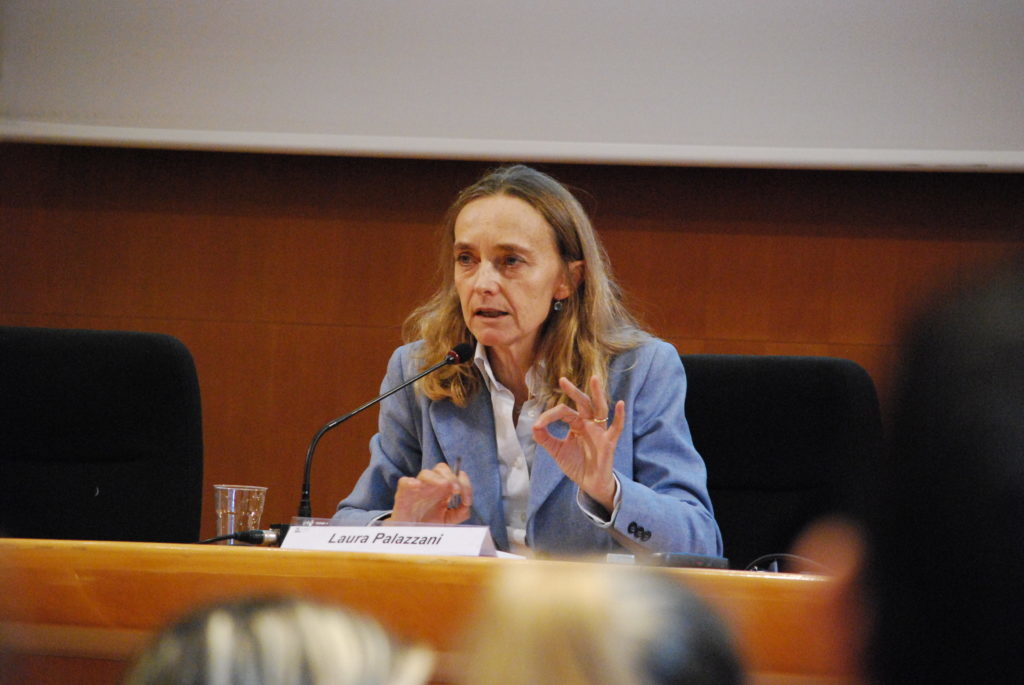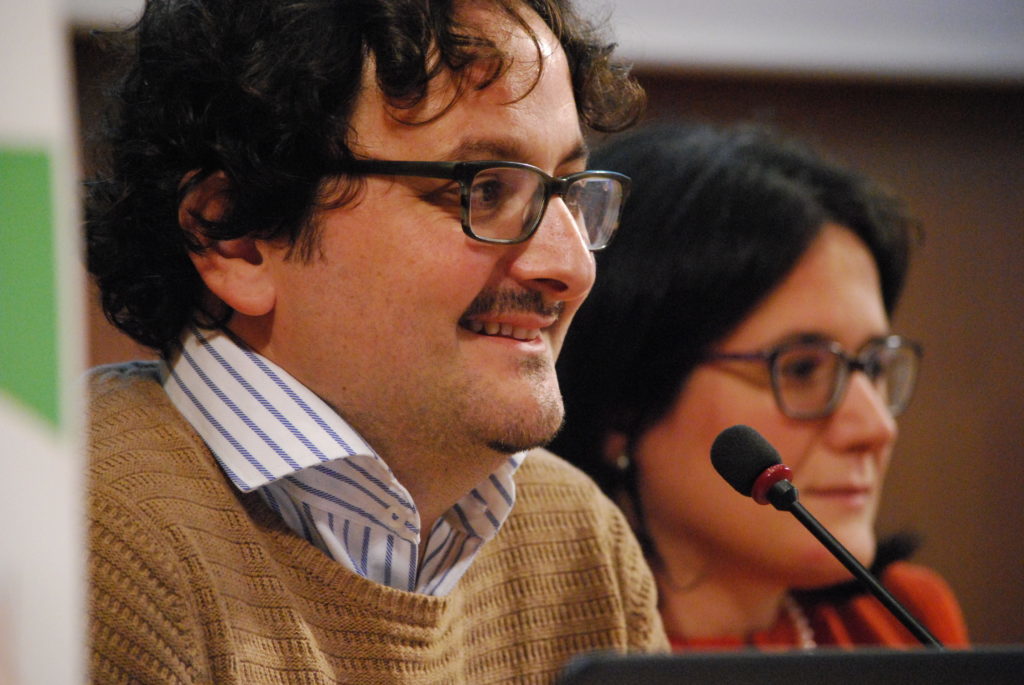“Ethical and Legal Issues concerning Informed Consent”, seminar in Rome
LUMSA team presented last Monday first i-CONSENT results within the seminar “Ethical and Legal Issues concerning Informed Consent” held in Rome.
The conference featured the opening remarks of Prof. Claudio Giannotti, Director of the GEPLI Department. Profs. Laura Palazzani and Fabio Macioce University, along with other academics and experts, gave then an overview of the main ethical and legal issues related to informed consent focusing on gender, age and cultural issues.
When clinical trials involve persons unable to consent, like minors, duty to protect them becomes primary. This was one of the aspects triggering the i-CONSENT investigations at this point. This issue has, at the same time, become a preliminary question on every ethical discussion about clinical trials.
i-CONSENT findings reveal that involving adolescents and minors in clinical research means having to take into account aspects such as their “vulnerability”, the role of parents in the process, their specific age, etc. The first conclusions show that, jointly with their parents’ supervision, children sufficiently able to understand the proposed research should have the opportunity to be informed about the nature and the purpose of the research, its risks and burdens, expected benefits, etc. on their own. They should be heard in order to ask questions and to express their will to participate as a way to empower them but also to improve the informed consent process. In this sense, it has been discovered that the information material addressed to them should be based more on their level of maturity and his/her capacity of comprehension than on their age.
Investigations also focused on studying gender perspective within in informed consent in these clinical trial processes. It is general knowledge that addressing women and men separately is essential to obtain reliable gender-informed perspectives. But this is not enough. There are specific imperative issues to consider. In this sense, one of the main conclusions drawn from the i-CONSENT studies was the importance of making sure the information has been correctly understood by the women participating. This is especially relevant when speaking about women coming from vulnerable social contexts and low literacy levels and from contexts of patriarchal authority. The investigations showed that women belonging to these contexts may adopt a passive behaviour with regard to enrolment procedures and/or not seek interaction with researchers in case of insufficient understanding of the study evolution, so it is something to be tracked. Along with this, researchers must make sure that the decision has been made freely. This may seem obvious but whenever low-income women are enrolled in research, in order to make sure they have not been coerced or unduly influenced, caution is needed.
A controversial issue related to women acquisition of informed consent stemming from the investigations was the role of the pregnant woman’s partner in the consent process as well as issues regarding fertile/pregnant or breastfeeding women. These shall also be taken into special account.
The findings, based on bibliographic research and normative collection,research protocols revision, comparison with experts and with other partners (international workshops, consortium meeting, TC, etc.), where gathered in two reports which will be fully available on our website soon:
Gender and age-related issues associated with the acquisition of informed consent
Legal issues concerning informed consent in translational/clinical research
i-CONSENT reports
The seminar was also conducted by:
- Prof. Stefano Semplici – Full Professor of Social Ethics – University of Rome – Tor Vergata
- Prof. Carlo Petrini – Head of the Bioethics Unit of the Istituto Superiore di Sanità
- Prof. Alberto Garcia – Extraordinary Bioethics – UNESCO Chair of Bioethics and Human Rights at the Pontifical Athenaeum Regina Apostolorum-European University of Rome
- Prof. Claudio Sartea – Aggregate of Philosophy of Law – University of Rome – Tor Vergata
- Dr. Jaime Fons-Martínez – Fundació para al Foment de la Investigació Sanitaria i Biomèdica de la Comunitat Valenciana – FISABIO
The seminar is part of the dissemination activities of the European i-CONSENT research project.



